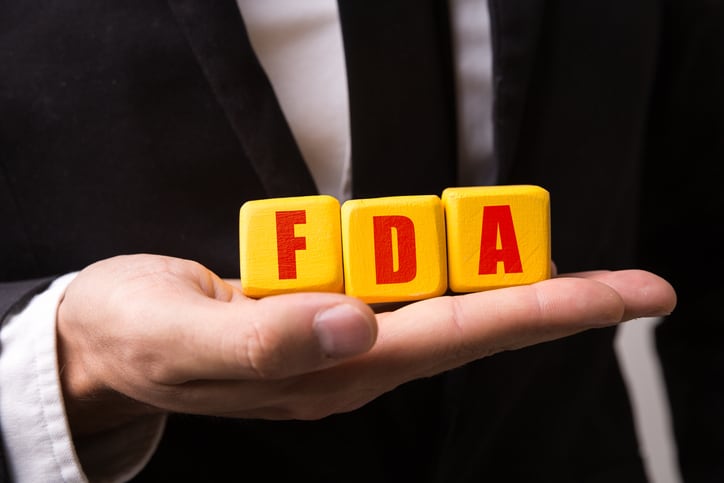The new research was published in the Journal of the International Society of Sports Nutrition. It was conducted a team of researchers associated with US Army and Navy health institutes.
The researchers were looking at the prevalence of use for a category of products they referred to as ‘sports-related nutritional supplements,’ (SRNS) which they defined as sports drinks, sports bars and sports gels.
The researchers examined this category of products as being distinct from dietary supplements as a whole. They based this distinction on the fact that most of these products are sold as foods.
These kinds of products do tend to straddle the supplement/foods divide, with some being sold formally as supplements while others list a Nutrition Facts panel on the back. The difference is generally the choice of the manufacturer, as the formulas may be quite similar in many cases.
Study based on large data set
The researchers used data collected by a wider survey looking at dietary supplement use among troops. That survey collected data from more than 26,000 active service members, of whom about 88% were male.
The sports product study further parsed that data to determine what kind of SRNS service members were using and how often. They also wanted to find out more about the service members themselves to see if they could glean any factors that might drive greater usage. And finally, the researchers wanted to ascertain the rate of self-reported adverse events (AEs) associated with these products.
Overall the researchers found that 45% of active service members used at least one SRNS a week. Sports drinks were the most often used category, followed fairly closely by sports bars. Only a few (3%) of the service members reported using a sports gel.
The researchers found that gender, age and education level influenced the use of SRNSs among service members. Male service members used more SRNSs that did women, and use showed an inverse relationship with educational level and with age, with the exception of sports gels, in which older service members tended to use more.
Smokers tended to use more SRNSs, and smokeless tobacco users were the highest consumers of all groups. Service members associated with combat arms of the military used more SRNSs, and, interestingly, the researchers found no correlation between BMI and use of these products.
Fewer adverse events than found in supplements
The researchers said there were few adverse events reported by service members in connection with the use of these products. Those ranged from 1.3% of sports drink users reporting at least one adverse event up to 2.8% for sports gels. In contrast, the researchers said that studies looking at dietary supplement use among service members have found AE prevalence of 8% to as much as 29%, with the most reliable data putting that prevalence at about 18%.
“This large study of a stratified random sample of SMs (service members) found that nearly half of SMs consumed SRNSs weekly, and self-reported AEs were comparatively low. The AE incidence for SRNSs was much lower than typically found for dietary supplements, possibly because of more rigorous regulatory oversight for SRNSs,” the researchers concluded.
The researchers were basing their assertion about regulatory oversight on the difference evidence standards for what is considered to be Generally Recognized as Safe (GRAS), a food standard, and what is considered adequate proof of safety for a dietary ingredient in a supplement.
Questions about researchers’ safety conclusions
But Rick Kingston, PharmD, an expert on adverse events reporting, said some of the researchers’ assumptions and conclusions might have missed some of the nuances inherent in AE data sets. Kingston is both a professor in the School of Pharmacy at the University of Minnesota as well as the president of regulatory and scientific affairs at SafetyCall International.
“I believe some of the assumptions stated in the article are misleading. The adverse event reporting requirements for dietary supplements are actually more rigorous than for food. Dietary supplement manufacturers are required to document any allegation of an adverse event and report those meeting the definition of a ‘Serious Adverse Event’ to the FDA within 15 business days. Food manufacturers are required to report serious adverse effects potentially affecting public health,” Kingston told NutraIngredients-USA.
“Another limitation is the fact that not all Sport Related Nutritional Supplements are created equal. It would have been more helpful to look at individual product ingredients rather than reporting by category. You wouldn’t want to lump all drug adverse events together and it assume it was representative for every drug,” he added.
“Overall, these data are somewhat surprising in terms of number of service members reporting one or more adverse events involving these products during the previous six months. Based on my familiarity with dietary supplement AE reporting, having 2% of your customers reporting AEs associated with use of your product would be potentially concerning,” Kingston concluded.
Source: Journal of the International Society of Sports Nutrition
18, Article number: 59 (2021)
Prevalence, factors associated with use, and adverse effects of sport-related nutritional supplements (sport drinks, sport bars, sport gels): the US military dietary supplement use study
Authors: Knapik JJ, et al.




